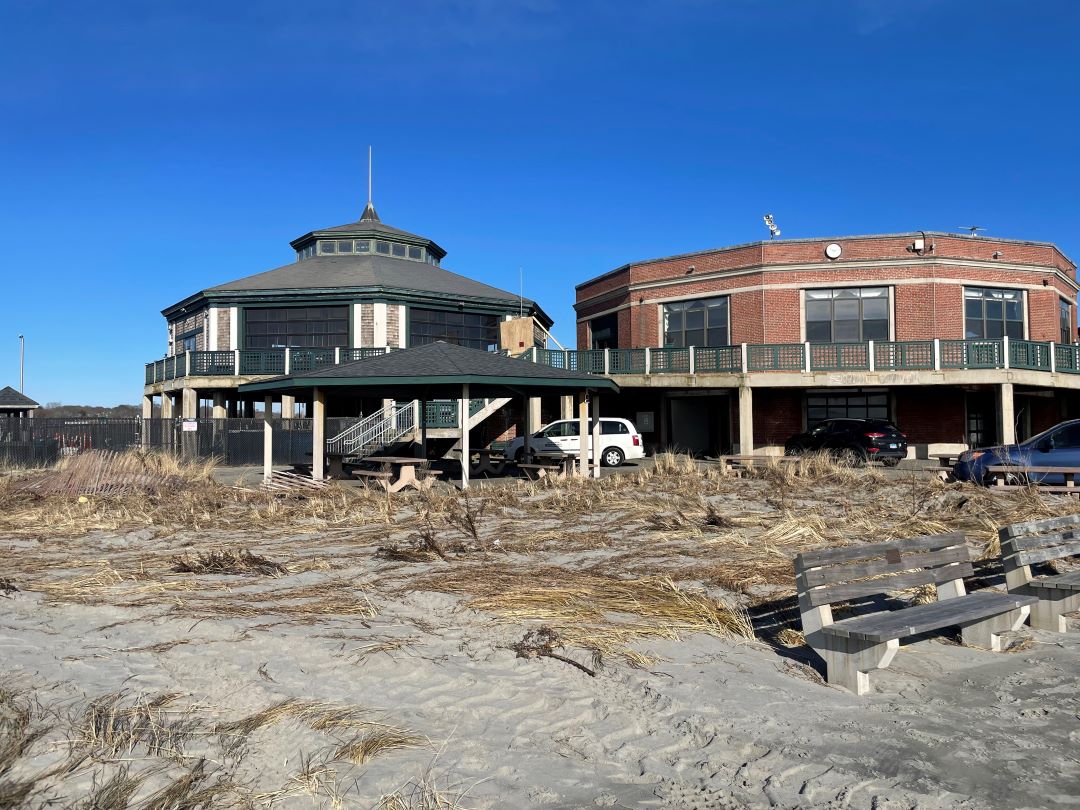It’s Not Enough: With Ambitious To-Do List, Climate Council Fails to Meet Challenges
Rhode Island’s business-as-usual approach is failing to address impacts of a changing climate
May 13, 2020
Last month, for the third time in less than two years, members of a Rhode Island climate advocacy group documented the deficiencies of the state’s largely unsupported council that is tasked with mitigating climate crisis impacts.
The 2014 law that created the Executive Climate Change Coordinating Council (EC4) gave it an ambitious to-do list, such as reduce emissions generated by state agencies, work with municipalities to support the development of sustainable and resilient communities, and work with other states to develop regional initiatives.
Since the law was passed, however, Rhode Island’s environmentally challenged General Assembly has expected the unpaid 12-member council, with no staff to conduct research or handle administrative tasks, to address these tasks and the many challenges of the climate crisis with no funding and no authority.
Unsurprisingly, the EC4 has accomplished little to nothing during the past five years, beyond reports that regurgitate the same information and talking points.
The Civic Alliance for a Cooler Rhode Island (CACRI), in its latest assessment, again stresses the need for the EC4 and, thus, the state to move beyond business as usual.
Reversing that shortsighted model, however, continues to be a slog, as Rhode Island’s business-as-usual climate response looks like this:
The EC4’s Science and Technical Advisory Board often meets without a quorum.
The state’s climate council was also required by law to have a broad-based board advising it. Gov. Gina Raimondo has made her five selections for the 13-member EC4 Advisory Board, but the House and Senate haven’t bothered to nominate anyone in five years.
At the EC4’s most recent meeting, a virtual gathering held April 24, its chairwoman, Janet Coit, director of the Rhode Island Department of Environmental Management, begged the public and environmental organizations to press House Speaker Nicholas Mattiello and Senate President Dominick Ruggerio to make their appointments.
“It’s frustrating to me because we have tried to get the House and the Senate to make their appointments,” she said.
Don’t expect Mattiello to lift a finger to address the crisis. The most powerful politician in the state — well, at least until the coronavirus arrived — already has given up trying.
In mid-January, Mattiello told Boston Globe reporter Dan McGowan that “there’s nothing Rhode Island can do to address climate change in a way that is real or impactful.”
The Ocean State has an extensive library of nationally respected reports, studies, and online tools to help it mitigate the impacts of a changing climate, but these resources are routinely ignored when following their guidance doesn’t sit well with corporations and special interests.
Open space, most notably forestland, continues to be sacrificed to make room for renewable-energy projects. State officials have done little, in terms of incentives and laws, to direct land-based wind and solar power to areas that have already been scarred by development.
Raimondo spent half of her first term championing the development of a fossil-fuel power plant in the woods of Burrillville.
Substantial work required
The title of CACRI’s 24-page assessment sums up EC4’s work in one word: “insufficient.”
“We need to rapidly increase the rate of reduction of greenhouse gas emissions attributable to Rhode Island to do our fair share in keeping average temperature increases below a level that would likely result in widespread catastrophe,” according to the document. “Our concerted effort in this matter is overdue. Greenhouse gas emissions are cumulative — putting things off only makes the challenges we face greater.”
The assessment’s authors noted that Rhode Island, in its battle to help mitigate the impacts of the climate crisis, needs more science, public engagement, planning, and coordination. They also said the state needs to rely less on executive orders and more on laws.
CACRI member Ken Payne, a former senior policy adviser to the Rhode Island Senate and a former director of the Rhode Island Senate Policy Office, has said that part of the problem is that the EC4 was never given any authority to enforce emission-reduction targets. He has noted that the law that created the council, the Resilient Rhode Island Act, neither includes a grant of powers to the EC4 to perform its duties nor provides for an allocation of resources needed to do the work.
Enforceable targets for the reduction of greenhouse-gas emissions are crucial, according to CACRI. The collaborative of climate activists and environmental advocates says Rhode Island has been slow to make the necessary adjustments to state agencies and laws that are responsible for the reduction of the Ocean State’s climate emissions.
The group’s most recent report claims there has been “no assessing of performance, no meaningful integration of diverse efforts, and no actual, effective coordination of state agency activity” by the state’s climate council.




Why doesn’t the council put a call out to volunteers in Rhode Island to conduct research and assist with administrative tasks? College students, non-profits and lawyers seeking pro bono work strike me as obvious groups to start with an expand from there as needed.